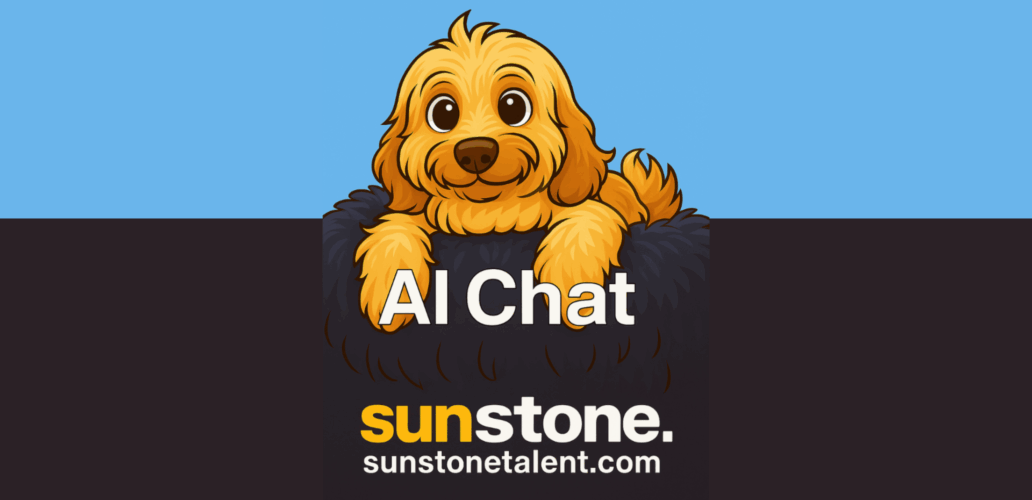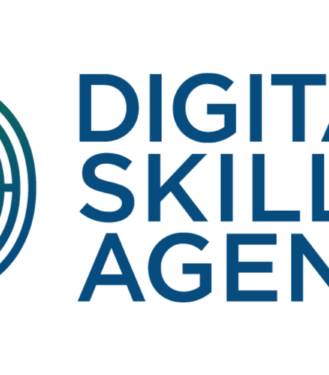When Paul started Sunstone Recruitment 12 years ago, artificial intelligence wasn’t even on his radar. As a psychology graduate turned IT recruiter, he was focused on one thing: connecting great people with great opportunities in Canterbury’s growing tech scene.
Fast forward to today, and Paul has just built his own AI chatbot in less time than it takes to complete a typical workday. It’s a story that perfectly captures how accessible AI technology has become – and why the human element remains irreplaceable.
From Canterbury Tech Inspiration to 300+ Companies
Paul’s journey began with inspiration from the Canterbury Tech community. Attending meetups and learning about the latest technology stacks wasn’t just professional development – it was essential research for understanding the roles he was recruiting for.
“When I’m interviewing developers, it’s really important for me to learn about the latest tech stacks or the latest type of computing, whether it’s AI or extended reality,” Paul explains. This commitment to staying current has served him well, with Sunstone now having worked with over 300 companies across Canterbury’s diverse tech ecosystem.
The relationships built through Canterbury Tech events have been particularly valuable. “Some of those relationships I’ve built have turned into business, and I’ve got people jobs in certain spaces,” he notes. It’s a reminder that even in our increasingly digital world, business still comes down to human connections.
Building “Sunny” – The Four-Hour AI Project
The catalyst for Paul’s AI experiment was practical: too many emails from overseas candidates asking the same questions about working in New Zealand. With the job market becoming more client-led in recent years, Sunstone was receiving numerous inquiries about visa requirements, salary expectations, and job-hunting strategies.
Rather than continue answering the same questions repeatedly, Paul decided to build an AI chatbot. The entire process took just three to four hours, which Paul admits “just blew my mind how accessible AI is now.” He followed steps suggested by ChatGPT, and the result was “Sunny” (modeled on the family dog), which achieved 98% accuracy straight out of the gate.
Paul’s approach was hands-on and iterative. He tweaked the prompts to adjust for New Zealand English, added some Te Reo Māori elements, and fed it information from Sunstone’s web pages. The result was a chatbot that could handle complex queries about visa requirements, salary ranges, job search strategies, and even local learning institutions.
What’s particularly impressive is how the chatbot handles nuanced interactions. When Paul’s children asked Sunny if it was a dog, it responded with a touch of humor: “No, haha. No, I’m not a dog, but I can help you with recruitment services,” even adding a little paw mark to the message.
The chatbot can now handle complex queries about:
- Visa requirements for different countries
- Salary ranges across various tech roles
- Job search strategies specific to New Zealand
- Learning institutions in Canterbury
The Human Touch Remains Essential
Despite Sunny’s success, Paul is clear about AI’s limitations in recruitment. “The problem with LLMs is they just normalise data. They can’t quite do what humans do,” he explains.
In recruitment, it’s often the nuanced details that matter – a graduate’s side project, international experience, or work at a similar company. These are the factors that make a candidate stand out, and they require human judgment to identify and evaluate.
Paul still reviews every CV personally, ensuring no promising candidate slips through the cracks. “It’s a people game. We want to get back to everyone, and if they want feedback, we’ll give it to them.”
This approach reflects a broader philosophy about AI in business: it’s most effective when it handles routine tasks, freeing humans to focus on what they do best – building relationships, making nuanced decisions, and providing personalised service.
What This Means for Small Business
Paul’s experience offers valuable lessons for other small business owners considering AI adoption. The technology is more accessible than ever, but success still depends on understanding your specific needs and maintaining quality standards.
His unofficial motto says it all: “AI – you got to know what good looks like.”
The key is using AI as a companion tool rather than a replacement for human expertise. For Sunstone, this means Sunny handles routine inquiries while Paul focuses on the complex, relationship-driven aspects of recruitment that truly add value.
What routine tasks in your business could benefit from AI assistance? And more importantly, how would that free you up to focus on the human elements that set your service apart?
To check out more info on sunstonetalent.com and ask Sunny their new AI Chatbot a question please go to: https://sunstonetalent.com/aichat-faqs
Powered by Contented




